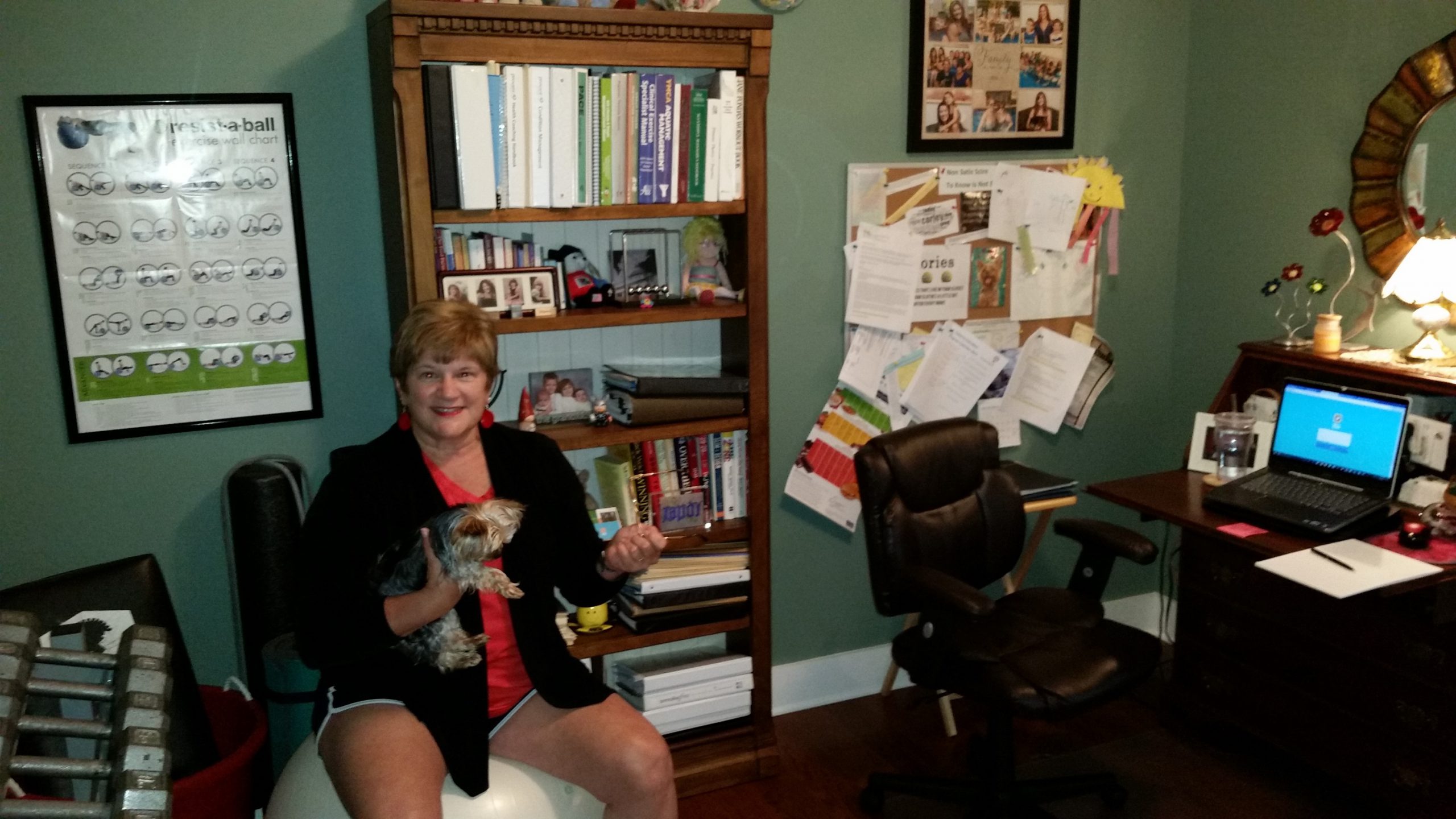Remote Health Coaching Means Helping More People

 When Candy Corley, a health and wellness coach, lived in Rhode Island, she split her time between five locations traveling to meet with people to work with them on setting and meeting their wellness goals.
When Candy Corley, a health and wellness coach, lived in Rhode Island, she split her time between five locations traveling to meet with people to work with them on setting and meeting their wellness goals.
 Then she moved to North Carolina. Now, she does what she used to do only without the traffic. Rather than driving from place to place, she meets with clients via video chat, teleconference, email and text.
Then she moved to North Carolina. Now, she does what she used to do only without the traffic. Rather than driving from place to place, she meets with clients via video chat, teleconference, email and text.
Candy calls it her dream job. Not only does she get to do the work she loves, she can help people all over the country as a health coach for Vida.
What are the advantages of being a remote health coach?
The biggest advantage for me is that I don’t have to travel, so I have more time to do my work and to enjoy my personal life. There is a benefit for my clients too. It’s easier for them to find the time to meet with me since they also do not have travel time.
I find that clients are more open via video or phone than in person. This allows the coaching relationship to evolve more quickly.
Plus, I can affect change in more lives. Now I can work with about 70 clients. When I was going from site to site, I had about 40.
How is meeting people electronically different for your coaching than seeing people in person?
When I would meet with people, I spent a little time setting the room for them to be comfortable: a private room, a nice chair, a pad of paper and tissues. I can’t do that long distance, but I do take some time at the beginning of the call to ask if they’re in a comfortable place. I also ask them about whether they have privacy, and I listen carefully to get a sense of what is going on in their background. (NO video chats while driving!) Whether we are meeting in person or electronically, it’s important that they can talk freely so we can have an open and honest conversation.
How do people do with following their plans when you aren’t checking in with them in person?
For the most part, people do as well or better when I’m working with them electronically. We use a lot of tracking apps and the clients find that to be a convenient way to show that they’re following through on their wellness plan. They set goals that I support and offer some guidance to help them figure out how to do what they want. But I never tell them what to do. Health coaching is client focused and client driven.
I connect with each individual based on how they want to connect. Some prefer a text or two a week while others want more frequent messaging. Some enjoy informational articles and some request motivational messages.
Some clients only want to communicate by text, and I respect that; but in my experience, those who have weekly phone calls reach their goals more quickly.
How do you avoid feeling disconnected since you don’t go to an office?
My company uses the communication channel “Slack” and that helps a lot. I can check in with other health coaches to see what they are “chatting” about, and also get company updates. Sometimes we share resources and sometimes we just catch up like you would if you were in an office. I like the flexibility too. I check in when I have time and I can “direct message” people if want to reach a specific someone. We rarely use email.
I also reach out to my company for feedback via Slack. My coach trainer is available on her time too.
What is your advice to someone who is considering remote work?
If you can align with a company that has people who are doing what you do, then you will have support and resources. If you are going it alone, build a network of people who are doing similar work so you have others to talk with and share information and experiences. It helps to find others who can validate what you are doing and help you figure out what is working and what isn’t such as, Are you working too many hours? Not enough? Connecting with other remote professionals helps you gauge your performance better.
Set up a comfortable office with things that will help make you comfortable and motivate you. And be sure to get the right technology. It’s frustrating to work without the right tools.
I recommend dressing for work. I have a uniform of sorts. When I was meeting with people, I’d wear a navy polo and khaki pants. Now, I might wear the navy polo and khaki shorts. Dressing for the work day reminds me that this is my work. I need to value that and I want my clients to value that too.
I’m a health educator and a singer too, with three rules for presenting and performing:
- Always look good.
- Be prepared. Have a plan A and a plan B.
- Keep in mind what’s in it for your audience. It’s not about what you want to say, it’s about what they want or need to hear.
Do you have a story to share? Let us know if you or someone you know would be a candidate for Remote Nation profiled.
